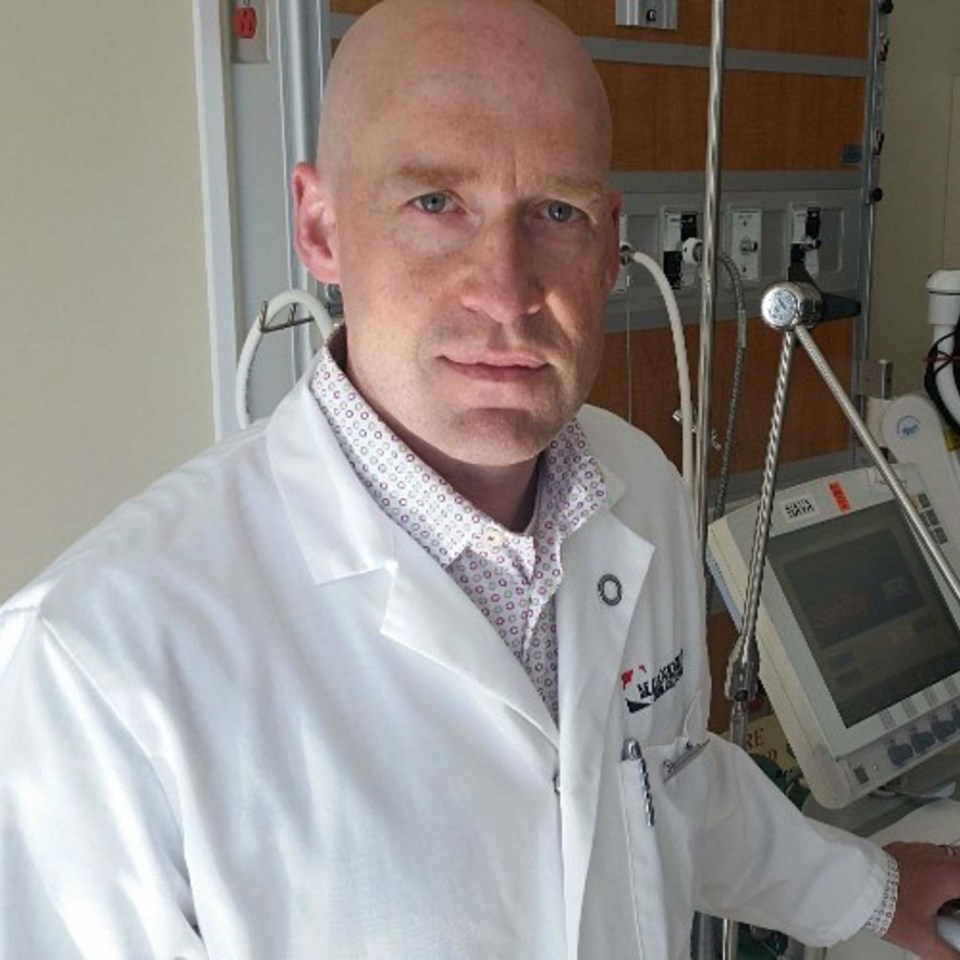Unvaccinated COVID-19 patients put a $61.3-million “avoidable” burden on the Alberta health-care system during the fourth COVID wave, according to a study out of the University of Alberta.
“In my view, a critical takeaway from this study is that vaccination against COVID-19, with free and available Health Canada-approved vaccines, can serve to not only protect individuals from becoming very sick with COVID-19, but also provides greater societal protection by reducing avoidable strain and excess costs on our already heavily burdened health-care system,” said study author, Dr. Sean Bagshaw, in an email to The Gazette.
On July 26, the study — Avoidable intensive care unit resource use and costs of unvaccinated patients with COVID-19: a historical population-based cohort study on the costs and resources used to care for unvaccinated patients in the ICU in Alberta — was published in the Canadian Journal of Anesthesia.
The retrospective, population-based cohort study looked at people aged 12 and up who had been admitted to ICU in Alberta between Sept. 6, 2021, and Jan. 4, 2022, when Alberta was experiencing the delta or fourth wave of the COVID virus. The data used for the study is publicly available.
The study found in a period of four months, unvaccinated people, mostly in the age range of 50 to 79 years, “accounted for more than 1,000 potentially avoidable ICU bed-days and $61 million in excess health-care costs.”
Bagshaw, a clinician scientist, chair, and associate professor of critical care medicine in the department of critical care medicine at the University of Alberta, said he was shocked by the data collected around cost estimates.
“The estimates for costs attributed to potentially avoidable ICU utilization (admissions plus days spent in the ICU) in only four months, driven by individuals not vaccinated against COVID-19, represented nearly two-thirds of the total annual ICU costs,” he said.
An estimated 20.6 per cent of the total annual provincial budget for ICU services was used for unvaccinated patients over the course of the study period.
The study found that 1,053 unvaccinated patients, 42 partially vaccinated, and 173 fully vaccinated patients were admitted to ICU with COVID-19.
ICU admission and bed-days for unvaccinated Albertans represented 61.8 per cent of the total non-pandemic baseline-funded ICU bed capacity in Alberta, the study read.
Unvaccinated people represented about 1,028 ICU admissions and 13,015 ICU bed days compared to the 35 ICU admissions and 437 ICU bed-days among partially vaccinated people.
“It may be understandable that some individuals may be hesitant about receiving vaccines against COVID-19, however, the science on vaccine effectiveness to reduce infection, reduce serious COVID-19 disease, and prevent deaths, and safety are clear and certain,” said Bagshaw.
The study did have some limitations, as researchers were only able to use “aggregate data on vaccination status and lengths of stay that were age adjusted only.”
Bagshaw said they could not take into account whether or not ICU-admitted, unvaccinated individuals were unvaccinated by choice or by medical reason as they did not have that data.
The study was also unable to confirm whether a patient had been admitted to the ICU multiple times in the 120-day period. However, the study notes it is believed this to be unlikely as the person would have had to develop a new COVID-19 infection and be re-hospitalized.
The data only covered ICU admissions and did not capture total hospitalizations in the province.
“Nevertheless, the data used to derive estimates were real-world, population level, and included vaccination status and health services use,” the study read.
When asked if there was anything he would say to anyone still skeptical about COVID-19 vaccinations, Bagshaw was firm.
“Vaccines are the backbone of navigating out of this pandemic and at times, will need to be complemented with other public health interventions.”




